Emergency Committee on the French style, Or rebellion generals
At different times in different countries, all the putsches and similar performances began the same way. Anxious at night with 21 on 22 in April, the empty streets of Algeria, the capital of the department of the same name, were filled with the roar of moving equipment: tracks of caterpillars scattered, powerful engines of armored personnel carriers and army trucks clanked bassly. The Arab quarter of Kasb, surrounded by a chain of roadblocks, lurking in suspense, but angular silhouettes one after another proceeded to the European center. The columns stopped at strategic sites of the city; doors and hatches slammed, the sides sank - hundreds of armed soldiers in camouflage uniforms, paratroopers and fighters of the French Foreign Legion with weapons at the ready skillfully and quickly occupied the position. Not the first year there was a war in Algeria, and the townsfolk were accustomed to the sight of military clusters. Someone, seeing, thought that this was another operation against the forces of the FLN (National Liberation Front), others, shrugging their shoulders, said: “Teaching”. But what was happening was not a counter-partisan action, much less doctrines.
At 2 hours of 10 minutes during the intermission at the famous Comedie Frances Theater, where Rossini’s Britanicus premiered, the director of the Paris Police, Maurice Papon, entered the presidential box with a senior representative of the Sûreté nationale (French intelligence). In response to General de Gaulle’s questioning look, it was followed by: “Your Honor, there is a coup in Algeria!”
Heavy burden of empire
Algeria for France was not just a colony like Senegal or Cameroon. Conquered after a long war in 30-40. XIX century, Algeria had the status of overseas departments. That is, in fact, was directly French territory. If in the colonial system of England, India occupied the central place, which was not at all out of poetic considerations called “the pearl of the British crown,” then Algeria was the central diamond in the French “overseas necklace.” Algeria played an important role in the economy of the metropolis, being a major producer and exporter of agricultural products and raw materials for industry.
Before World War II, it was the most economically developed French overseas territory. A fairly competent health and education policy contributed to the growth of the local Arab population. From the middle of the XIX to the middle of the XX century, it increased from 3 to 9 million. The limited areas of cultivable land with the ever-increasing number of Arabs and the concentration of large land plots in the hands of Europeans became in many respects the tinder from which the flame of the war in Algeria was drawn. The role of flint was played by Muslim nationalism, especially intensified after the end of the Second World War.
It cannot be said that the Arabs lived in resort conditions, but far from being worse, and in some places better than in the same “free” Egypt. The European population, which numbered more than 1 million, generally treated Aboriginal people, if not with “fraternal international love,” then fairly tolerant. For many whites, Algeria was a homeland for which they were ready to fight.
Algeria did not catch fire immediately - it gradually smoldered, here and there the first tongues of flame burst through. The main coolant in the leisurely campfire of the future war, as in many other similar processes, was the Arab intelligentsia, who had learned in the metropolis. The seeming well-being and relative calm, when whites were satisfied with almost everything, and the local population grumbled, could not go on forever. The world around was changing rapidly: colonial empires, these giants of the 19th century, were collapsing before our eyes. Algeria remained on this background a kind of archaic relic, a doomed mammoth relic. “We are waiting for change!” Is a slogan that was known long before its perpetuation by Viktor Tsoi.
November 1 The 1954 of the Year was created by the National Liberation Front. On the same day, Arab armed forces attacked the French garrisons throughout Algeria.
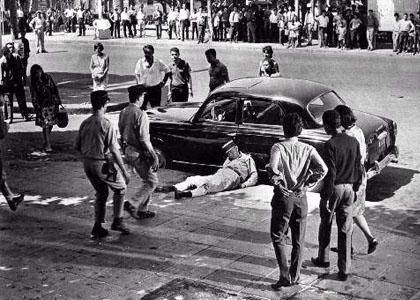
Dead end
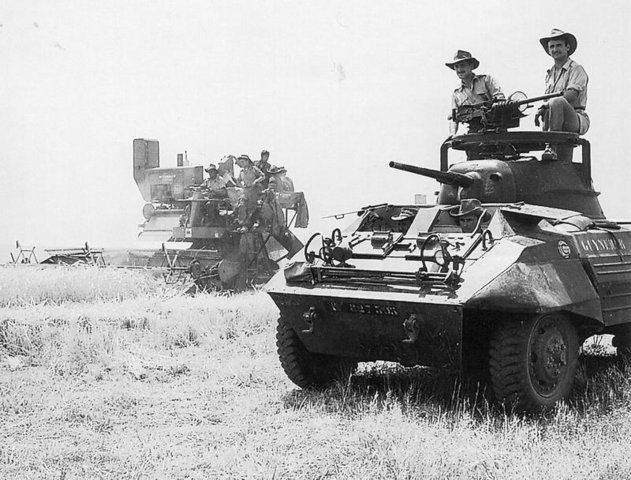
As in any such conflict, the broad guerrilla movement, which found a response from a part of the local population, was opposed by government forces to the high technologies of that time, widely complemented by repression. What specifically to do and how to cut the Gordian knot of the Algerian problem were not represented by the “democratic leaders” of France. Inaudible babbling in the press, chaotic political shyness led to a sharp crisis and the subsequent fall of the 4 republic. The country urgently needed a potent drug as a patient. No, Leader, center of power, around which a nation could rally. In the direct threat of a military coup, paralysis and powerlessness of the authorities in June 1958, General Charles de Gaulle returns to power, a large-scale figure in stories France. The patriotically-minded public and, above all, the military consider him to be the guarantor of the preservation of French Algeria.
4 June 1958, three days after being confirmed as chairman of the Council of Ministers, de Gaulle pays a visit to Algeria.
A truly triumphal reception awaits him: a large guard of honor at the airport, thousands of residents along the line of the motorcade. Sincere joy of newfound hope. The culmination of the speech was a general in front of a huge crowd gathered in front of the Government House. In response to the thousands of chanting “Algeria is French!” And “Save Algeria!” De Gaulle replied to his famous “I understand you!” The crowd literally howled with delight, having heard in these words what they really did not have.
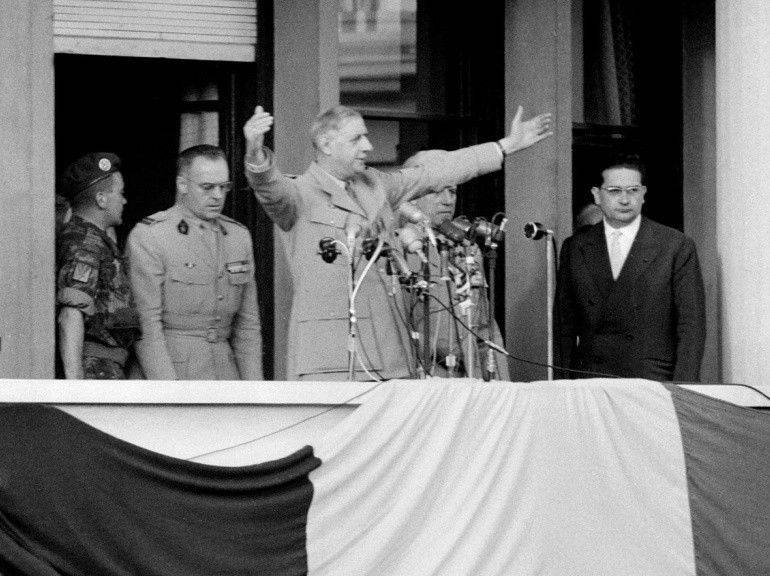
De Gaulle was an outstanding politician. His main goal was to restore the greatness of France, which had faded after the Second World War and the shameful loss of the Indochinese war. Convinced anti-Americanist, the general sought to withdraw the country from the sphere of influence of the United States and, in perspective, from the structures of NATO. For these purposes, it was necessary to provide France with all the attributes of a great power of the 1960-x sample. That is, nuclear weapons and their means of delivery. Such ambitious plans required significant resources, which the state burdened with the war in Algeria was not enough.
By 1959, using large-scale mobile units of paratroopers and special forces, helicopters, attack Aviation, the French army managed to drive parts of the TNF into remote mountainous areas. The ruthless actions of the special services (forced interrogations and torture were used) paralyzed the Arab underground in large cities. But at what price! The order in Algeria was ensured by an army group, the number of which exceeded 400 thousand people, 1,5 thousand tanks and armored personnel carriers, 1 aircraft and helicopters. Another 200 thousand people were part of the gendarmerie, which in terms of saturation with fire and vehicles was practically not inferior to the army. More than 100 thousand people - the so-called "Kharks", a military militia from loyal Arabs, and territorial defense detachments, which included white volunteers. All this huge group consumed a lot of manpower and resources, it demanded huge expenses, which, since 1945, the economy of France, which had been depressing, was harder to bear.
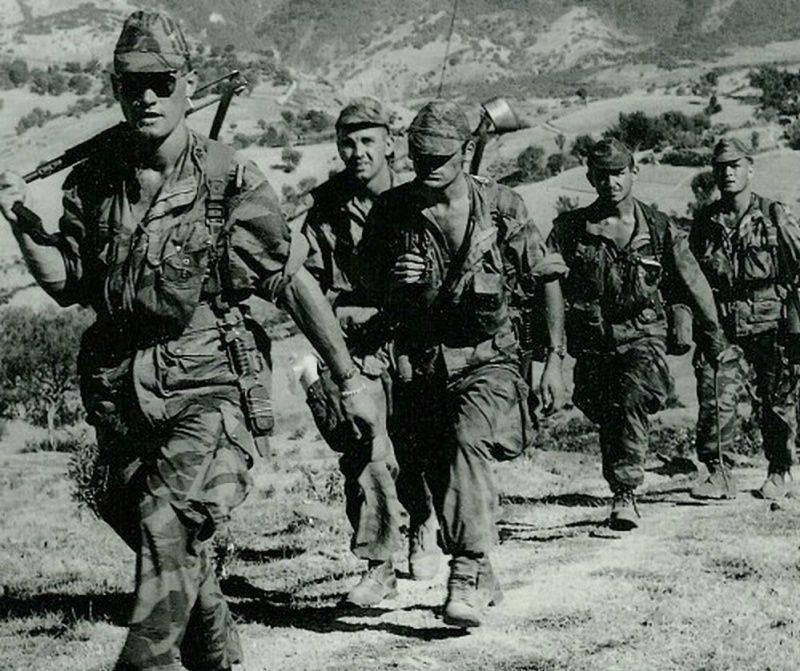
De Gaulle betrayed ?!
Even before his return to power, the general was convinced that Algeria could not be kept only by military means. He hatched the idea of the coexistence of the former French colonies under the auspices of France in a kind of alliance like the countries of the British Commonwealth. Realizing that such ideas can cause an extremely negative reaction, especially in the military environment, de Gaulle advanced his concept carefully and cautiously.
16 September 1959 for the first time in a public speech de Gaulle mentioned that Algeria has the right to self-determination. This provoked fury in the conservative-minded part of society. The part of the military, who were the comrades-in-arms of the General in the Free French, and with which he came to power, actually considered him a traitor. The hum of frustration, turning into indignation, began to spread among the European population of Algeria. Already at the end of January 1960, a group of students led by ultra-right activist Pierre Lagayard raised a revolt in the Algerian capital, blocking several quarters with barricades. But the army remained loyal to de Gaulle, and the riot failed. Lagayard took refuge in Spain, where many dissatisfied with the policies of the general will henceforth accumulate.
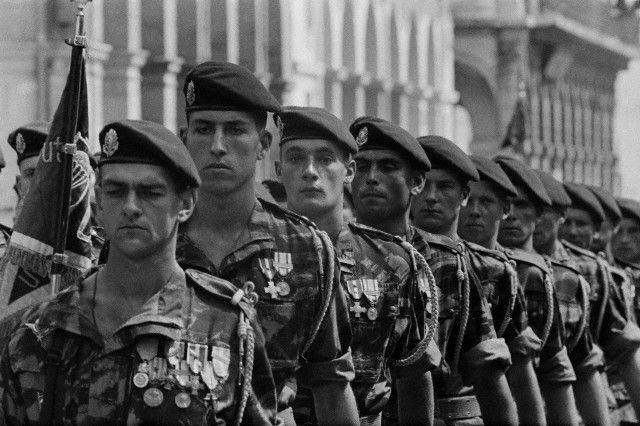
The entire French colonial empire declined 1960 a year - the 17 of the former colonies gained independence. During the year, de Gaulle made a number of statements in which he hinted at the possibility of a political solution to the problem. As if to prove the correctness of the selected 8 line on January 1961, a referendum is held, where 75% of respondents are in favor of granting independence to Algeria.
Discontent among the military grew meanwhile. The leader of the anti-gallist coalition, which supported war in Algeria to the bitter end, became a member of all wars waged by France in the army for the last forty years, received orders and medals (more than anyone in the French army) during the service of 36. ) General Raul Salan.
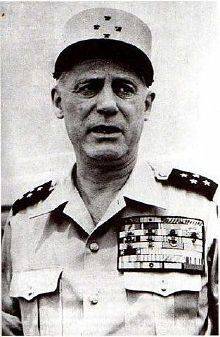
Putsch
In fact, Salan, who had taken de Gaulle to power in 1958, was disappointed with the policy of the authorities regarding Algeria, and retired in 1960. He was one of the founders of the famous SLA (Organization de l'armée secrète), a secret armed organization created in Spain in February 1961 of the year in response to the conduct and results of the 8 referendum of January 1961. Visiting Franco in general there were many interesting characters.
Realizing perfectly well that time is starting to work against them, Salan and his entourage decide once again to play the army card, as in 1958, when a wave of army sentiment brought de Gaulle to power. Moreover, a number of popular and key figures from among the supporters of French Algeria were removed from their posts or transferred to other posts. This is, for example, the highly popular commander of the 10 parachute division, General Jacques Mosiou, or Maurice Schalle, the former commander of troops in Algeria.
The concept of the upcoming performance was as follows. Based on the army group in Algeria itself, to capture a number of key objects with the help of supporters in the metropolis. Require de Gaulle’s resignation and the creation of a new government of trust, the purpose of which would be to keep the main French colony in the metropolis. Armed intervention was to begin directly in Algeria and in France. The conspirators primarily counted on the support of the units of the Foreign Legion of the Parachute Forces as the most combat-ready.
On the night of April 22, units of the 1 th Parachute Foreign Regiment commanded by Colonel de Saint-Mark took control of virtually all government buildings in Algeria. The coup was also supported by several regiments of the Foreign Legion, a unit of the 2 th parachute Foreign regiment of the 10 th parachute division, the 14 th and 18 th regiment of chasserov parachutists (25 parachute division). It was the elite of the French airborne troops. Initially, support was promised from other units and formations (27 of the Dragoon Regiment, 94 of the Infantry, 7 of the Algerian Tirallus Regiment, and Marine Corps). However, officers loyal to de Gaulle prevented their joining the rebels.
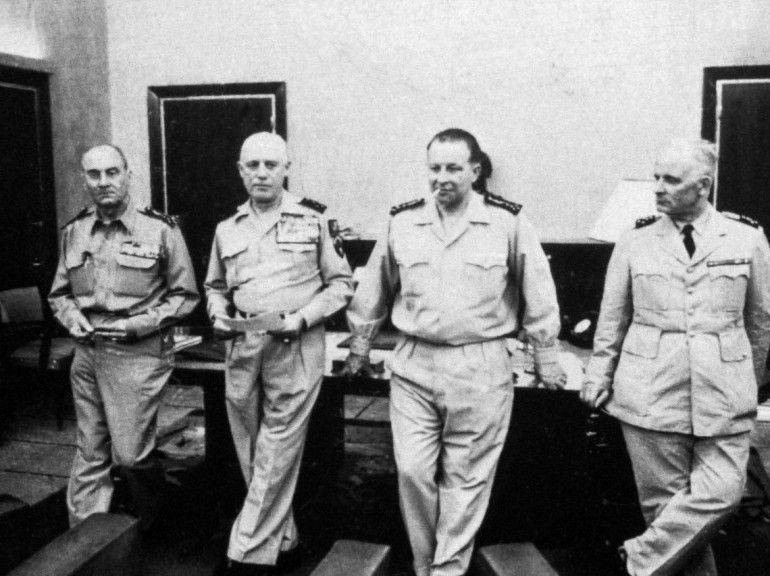
The leadership of the coup was carried out by retired generals Maurice Schalle (former commander-in-chief of French troops in Algeria), Edmond Zhuo (former inspector general of the French Air Force), Andre Zeller (former chief of general staff). Soon Raul Salan himself was to join them, whose arrival was expected from Spain.
At first, using the surprise factor, the rebels achieved some success: all the objects planned for the seizure were occupied quickly and without any resistance. The command of the units that remained loyal to de Gaulle was assumed by Vice-Admiral Kerville, commander of the French Navy in the Mediterranean. However, Colonel Godard blocked the Admiralty building with tanks, and the commander had to flee on the patrol boat to Oran. A number of people were arrested, including Robert Buron, Minister of Public Transport, who is visiting Algeria, Commissioner Fasho and several other people. 22 April in the morning 10 Algerian radio broadcast: "The army took control of Algeria and the Sahara."
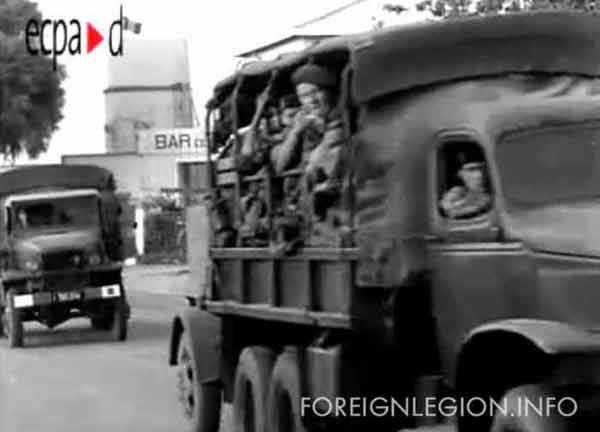
The population was called upon to “work quietly, keep calm and order”. The performance of the military caused sympathy among the local French population. The crowd gathered in the central square chanted: “Algeria is French!” The appearance of the generals in public was greeted with a standing ovation.
The first crashes began when Captain Philippe de Saint-Remy, a long-suspicious captain, was arrested in Paris by the French security service. Unfortunately for the putschists, the captain kept important papers at his disposal, which helped to identify and arrest the key figures of the conspiracy in the metropolis - General Faure and almost one and a half hundred other officers. Thus, all attempts at rebellion directly in France were neutralized. In these days and hours, as, however, and always, de Gaulle is calm, collected, sure. One by one orders and directives are issued. The alarm raised all the police and gendarme forces in the metropolis. Admiral Cabané, Commander of the French fleet in Toulon, he also receives orders to put the ships on full alert, to prevent any attempts to transfer rebel forces from Algeria. In Paris, tanks appear. Initially, this is a dozen Shermans, located at the building of the former Bourbon Palace, where the General Assembly of France met. Already at 5 a.m. on April 22 at a meeting of the Council of Ministers, de Gaulle announced that he "did not take the putsch seriously." At the same time, a state of emergency was introduced in Algeria.
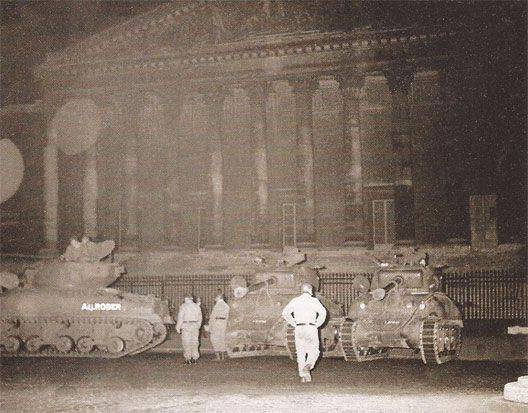
On the morning of April 23, the concrete landing strip of the air base of Algeria touched the chassis of the military transport "Bragg". General Raul Salan arrived from Spain. The leaders of the insurgency distributed duties among themselves: Schall became the commander-in-chief of the putsch forces, Zhuo was in charge of supply and transportation, economic and financial issues were in charge of Zeller, Salan took control of the civil administration and communication with the population. Salan, being the first among equals, insisted on the continuation of decisive action, realizing that the delay of death is like. In the 15 hours of 30 minutes, paratroopers under the command of Zeller entered the cities of Constantine, forcing the still wavering General Guro, the commander of the garrison, to join the coup. In Paris, SLA conducted several terrorist acts in the framework of intimidation of the authorities and impact on the minds. In 15 hours, a bomb worked at Orly Airport. Later explosions thundered at Lyon and Austerlitz stations. However, these attacks did not lead to anything except the exasperation of Parisians.
At 20 hours on television de Gaulle turned to the nation. In his address, he sharply condemned the coup, in fact accusing them of Nazi views, stating that “we don’t need the kind of France we want!” In conclusion, the general appealed to the patriotic feelings of citizens, soldiers and officers: “French, French ! Help me!"
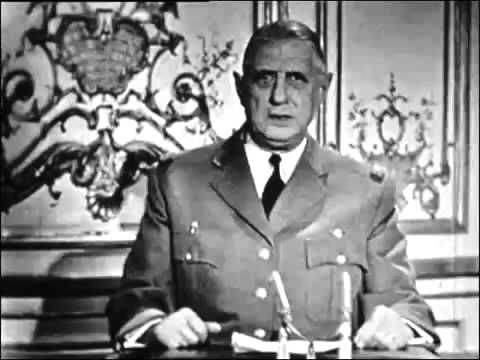
De Gaulle's speech was a success. As it turned out later, it was one of the first successful examples of the information war. The fact is that even in 1957, the so-called 5 bureau was established in all the headquarters of the French army in Algeria, whose duties included monitoring the morale and fighting spirit of the soldiers. The press agency of the 5 bureau was the weekly Bled, in fact the French version of the Soviet Soldier with variations. On its pages, "Bled" actively advertised the technical innovations of that time that could brighten up time in remote garrisons: cameras and recently appeared transistor receivers.
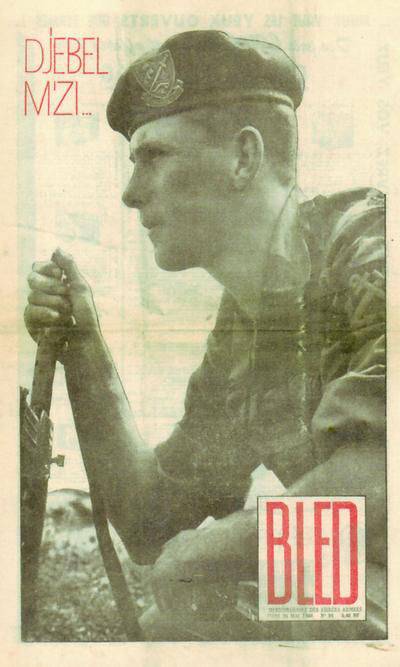
On the eve of de Gaulle’s speech, many officers forbade soldiers to listen to the general through army receivers and loudspeakers. And here came to the aid of radio, owned by many. Heard emotional speech stopped the hesitation of many, primarily the main contingent of the French army in Algeria, consisting of conscripts. After the failure of the conspiracy, the general called the conscripts like this: “500 thousands of lads with transistors”. The dynamics of the coup has steadily slowed down. The 13 Infantry Division, responsible for the strategic zone of Oran, and several battalions of the Foreign Legion followed the lead of their commander, General Philippe Ginesthe, remaining loyal to the government in Paris. Gineste was subsequently killed by SLA in retaliation.
24 April on the streets of French cities took at different estimates at least 12 million people. In the struggle against a common adversary, various political forces: the Communist Party, the socialists, representatives of the “democratic” movements — united. There is a preliminary hour strike. Insurgent Algeria responds with a hundred-thousandth demonstration in the Central Square under the slogan "Algeria is French!" General Salan speaks from the balcony, appealing to the "duty of patriots to save Algeria and France." The performance ends with a standing ovation and singing "Marseillaise". The local European population is well aware of what kind of future they face in the event of the independence of Algeria and the withdrawal of the army. Therefore, the "defenders of the White House" sample 1991, is not observed.
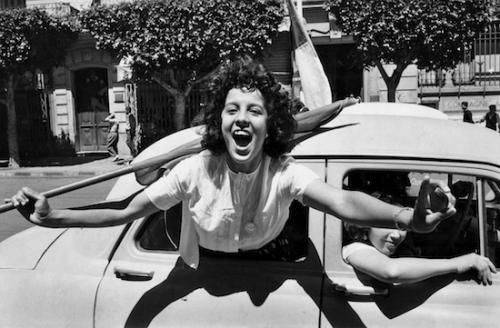
But, despite the cheerfulness, the generals begin to understand, to put it in the words of Bulgakovsky Khludov: “The people do not want us!” April 25 in the morning 6.05 at the French nuclear test site in Reganna a planned explosion of the Green Jerboa device occurs. The test was carried out on an accelerated training program, apparently due to fears that the atomic charge could somehow be used by the putschists for their own purposes.
The situation for the rebels was steadily deteriorating. On April 25, units of General Gustin's 16 Infantry Division entered Paris. Devotees to Gaulle are approaching tank units transferred from the French occupation zone in Germany. Panic rumors about the allegedly preparing for the transfer to the capital of parts of the rebel 10 and 25 airborne divisions are subsiding. The south coast of France is securely covered with Vaud interceptors. In the morning of the same 25 on April, trying to win over to their side parts of the fleet and marines, fourteen trucks and armored personnel carriers with paratroopers under the command of Colonel Leconte are trying to establish control over the naval base of Mers-El-Kebir. However, the operation fails. After that, the curve of events for the coup went down - they did not receive broad support in the almost 500-thousandth military contingent, de Gaulle did not go to any “constructive dialogues”. The metropolis was unreachable. The rebels gradually leave occupied buildings and objects, returning to the places of permanent deployment. The subdivisions of General Perrot’s 12 Infantry Division are included in Algeria. The coup failed. On the night of April 26, Maurice Schall speaks on the radio, where he announces a decision to stop the fight. He and Zeller surrender to the authorities. Generals Jouhaux and Salant go to the illegal position, deciding to continue the resistance to de Gaulle’s course, leading the SLA.
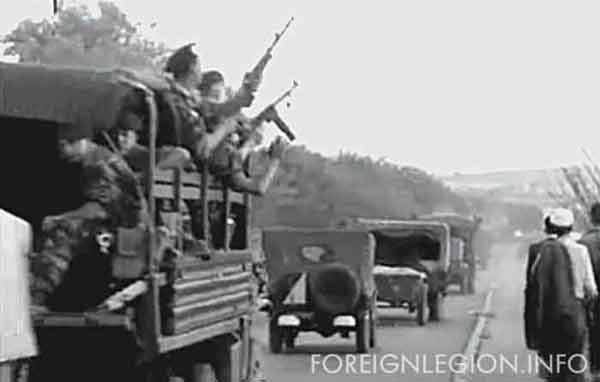
Court or court history?
The military tribunal sentenced Shall and Zeller to 15 years of imprisonment. 220 officers were removed from their posts, 114 brought to justice. For active participation in the putsch, in spite of previous achievements, three regiments were disbanded: the 1 th Foreign Parachute Regiment, the 14 th and 18 th regiment of chasseurs parachutists. More than a thousand officers, outraged by de Gaulle's policies, resigned in solidarity with the rebels.
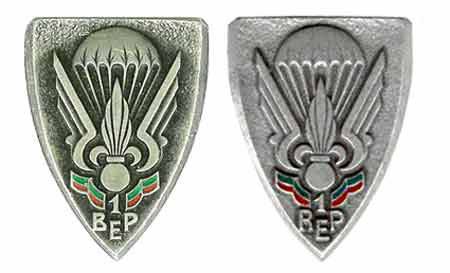
In 1968, both convicted generals were released under an amnesty. Salan and Zhuo were in an illegal situation for some time, but 1962 was arrested and sentenced - Salan to life imprisonment, and Zhuo to death, but also came under amnesty. In November 1982, all the generals were restored in the army reserve cadres.
19 March 1962, the so-called Evian agreements were signed, ending the war. 5 July Algeria became an independent state.
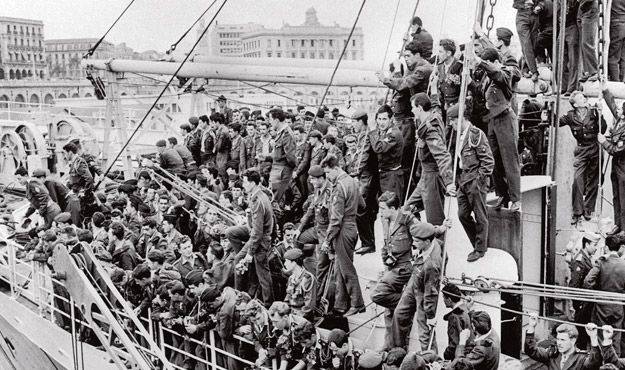
Immediately after the signing of the truce, more than a million people left the country, mostly Europeans and Arab loyalists, who suddenly became refugees. On the day of the proclamation of independence, 5 July in the city of Oran, a crowd of armed European people was organized by a crowd of armed people who did not have time to leave. According to various estimates, at the hands of Algerians, then, from 3 to 5, thousands of people died. Algeria from a prosperous French colony became a common third-world country that had long lived at the expense of the Soviet Union.
Freakingly shuffling history of a deck of political cards ... Did the TNF fighters know, on the night road, aiming the radiator of a French army truck, that their grandchildren and great-grandchildren with stubbornness of desperate people would cross the Mediterranean sea on fragile ships in the hope of receiving refugee status in France and as the highest good benefit from the government ? Did the gendarmes and police, standing at checkpoints in the cramped Arab districts of Algeria and Oran, assume that their counterparts through the 30-40 years in full arms would patrol the “compact places” of the Arabs already in Paris? .. Have representatives of the democratic public and intellectuals dreamed? "Who organized noisy demonstrations under the slogan" Freedom to Algeria! ", Terrible dreams about the future, where" free Algerians "dozens burned cars and shops in French cities? ..
About the coup of generals now few people remember in France. The topic is slippery and inconvenient in the era of universal tolerance and tolerance. And a regiment of shooters and paratroopers, battalions of the Foreign Legion, generals, officers, and soldiers, go in eternity to eternity. And on the city cemetery in the city of Vichy there is a modest grave, on which “Raul Salan. 10 June 1899 - 3 July 1984. SOLDIER OF THE GREAT WAR ".
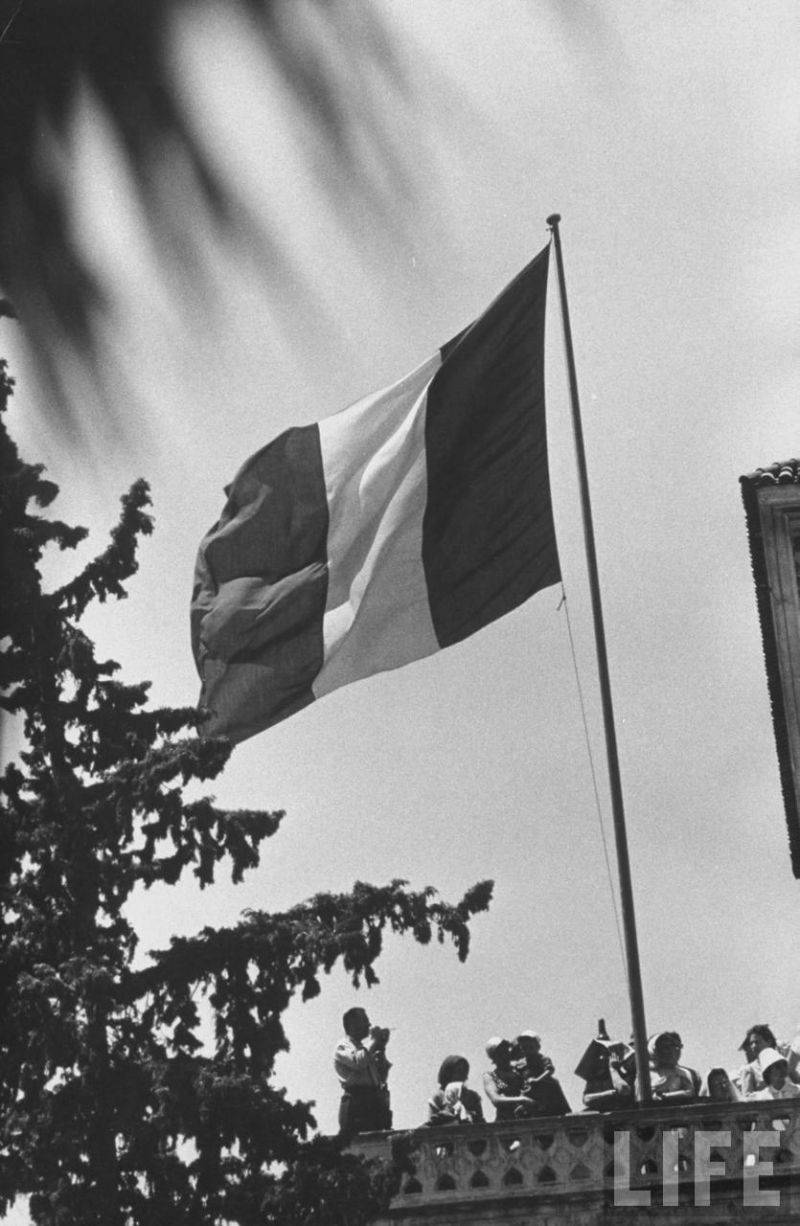
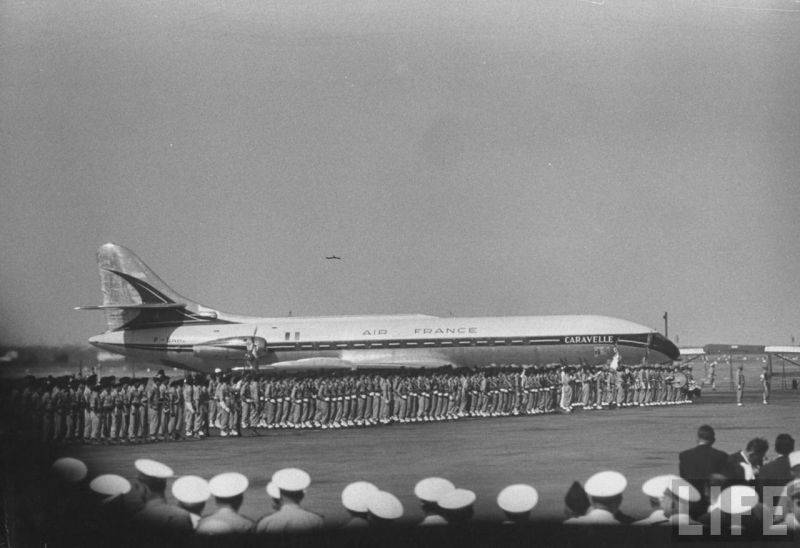
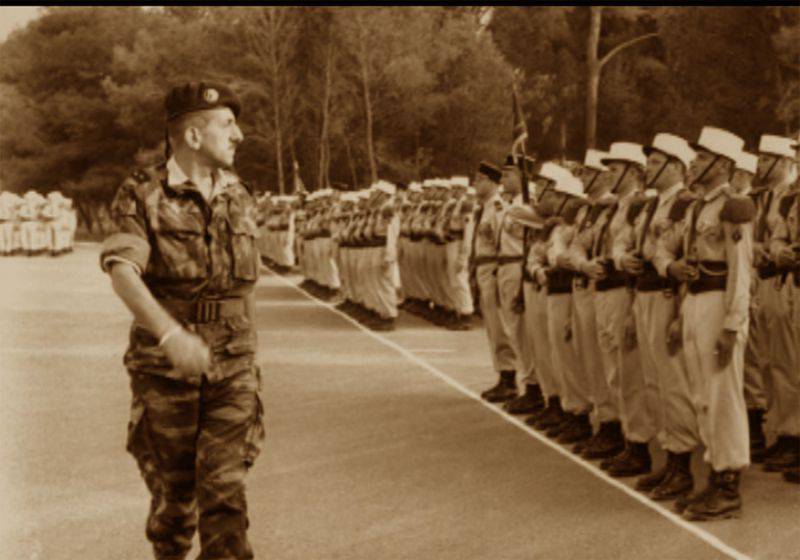
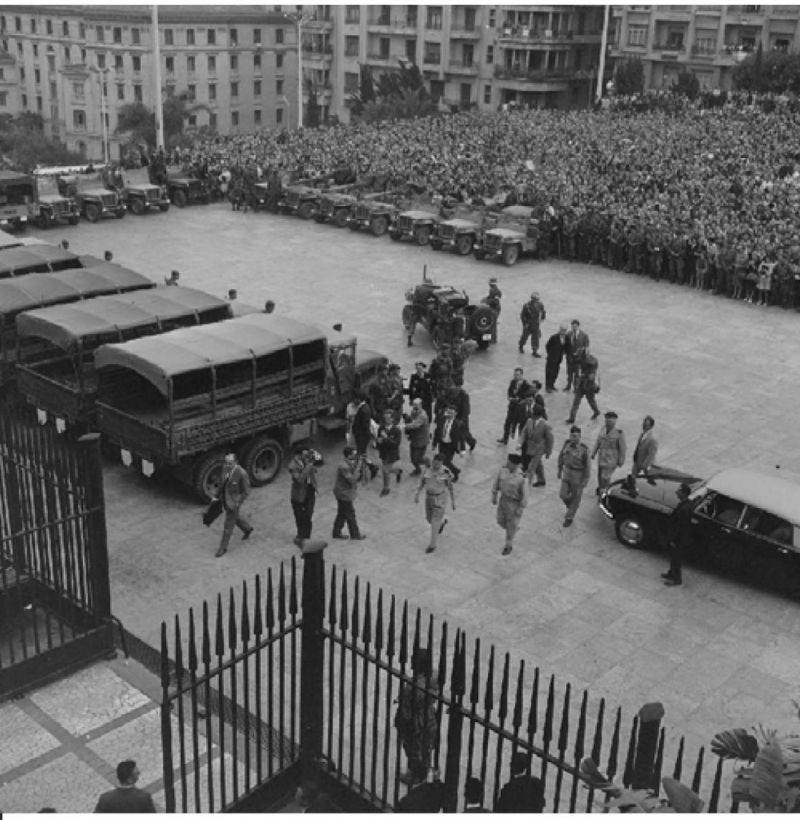
Information